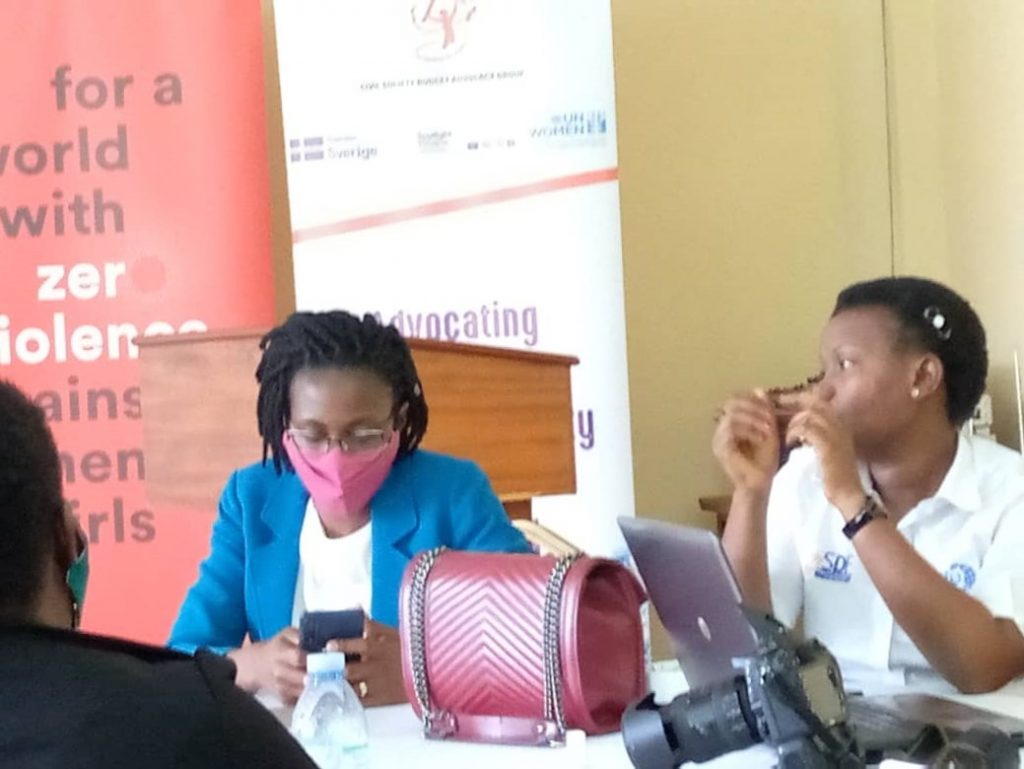CSBAG angles for gender sensitive tax policies

Policy reform lobby Civil Society Budget Advocacy Group CSBAG, is pushing for gender-sensitive taxation after conducting a study that showed women led businesses are impacted more by the existing tax policies.
Presenting the findings to a cross-section of stakeholders on March18, CSBAG observed that reforms in taxation can be an effective tool for rebalancing gender inequality.
From the prohibitive cost of compliance or formalization of their enterprises to exposure to informal charges such as market dues and user fees, women who constitute the majority in Uganda’s informal sector, face a tall order growing and sustaining their enterprises. According to findings by CSBAG, 33.8pc of Ugandan businesses belong to women. Of this group, 85.6pc are in in formal employment outside agriculture.
CSBAG observes that while even male-owned businesses face the same hurdles, women are impacted more because they come from an already disadvantaged position. The lobby is proposing that government adopts segmented progressive tax policies that lower the tax burden for small business owners.
Presenting the findings, Sophie Nampewo a senior budget policy specialist with CSBAG, said Ugandan business women find challenges related to business registration and licensing formalities. Requirements such as getting a tax identification number, VAT registration, a certificate of incorporation and National Social Security Fund registration, are not only costly for small low-margin businesses but also time consuming and difficult to comprehend for the average woman.
“The cost of formalising a small business can represent a barrier because in many some instances, women do not have control over cash flows in their households. This can be an insurmountable burden,” Nampewo said.
In addition to limited access to credit through formal channels which is also expensive, women are further inhibited by limited knowledge of tax compliance requirements, bookkeeping, filing returns, or engaging with sometimes adversarial tax officials.
As part of the proposed reforms, CSBAG says government should commission research on the impact of taxes and other fees on women businesses and design policies that address the gaps. Mechanisms for providing free a legal aid and advice to women entrepreneurs should also be explored. CSBAG also proposes scrapping VAT on basic goods and services that support households and livelihoods.

 African Heads of state head to South Korea next week for Summit talks
African Heads of state head to South Korea next week for Summit talks
 Trading leads as main source of income for Ugandans
Trading leads as main source of income for Ugandans
 New leadership for bankers’ umbrella as total assets top $12 billion
New leadership for bankers’ umbrella as total assets top $12 billion
 Brussels Airlines to announce Nairobi service
Brussels Airlines to announce Nairobi service
 SITA promises enhanced travel experience after Materna acquisition
SITA promises enhanced travel experience after Materna acquisition
 Saudia’s 105 aircraft order stretches A320neo lead over rival Max
Saudia’s 105 aircraft order stretches A320neo lead over rival Max
